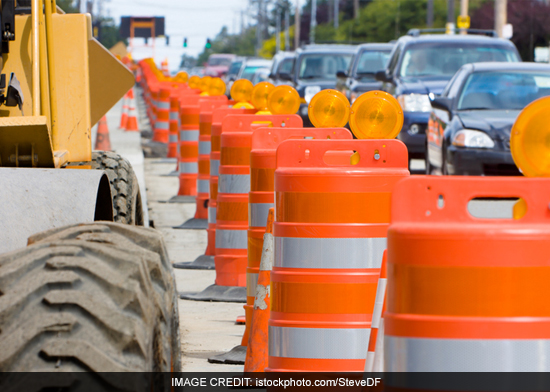
How Effective Will The Motor Vehicles (Amendment) Bill Be In Making Indian Roads Safer?
Road accidents are a leading cause of death in India. In 2015 alone, 5,01,423 road accidents occurred and 1,46,133 people died on our roads. These numbers have been rising over the years and there has been a call from several quarters for the government to adopt a more comprehensive legislative framework.
In response this, the government has developed the Motor Vehicles (Amendment) Bill which proposes 68 amendments to 233 sections of the existing 1988 Act as well as the insertion of 28 new sections. This bill was approved by the cabinet and introduced in the Lok Sabha by Minister of Road Transport and Highways Nitin Gadkari in August 2016. However, since then the bill has been lying for review with the Parliamentary Standing Committee on Transport, Tourism, and Culture.
Also Read: 10 Things To Know About The Motor Vehicles (Amendment) Bill 2016
While there is no definitive timeline as of now, at a Road Safety Walk organised by the Ministry of Road Transportation and Highway on Monday, Mr. Gadkari had said that he was hopeful that the bill would be passed in the upcoming Budget Session of Parliament.
We spoke to a few experts to get their views on the bill and find out if it can help make our roads safer.
‘A Much-Needed Move ’
“The existing legislation is inadequate. This bill is the first step to creating a legal framework for road safety. Penalties are being rationalized keeping in mind the inflation, a unified licensing system is being looked at, and provisions to cover juveniles are being included for the first time. These are some of the things it covers,” says Saji Cherian, Director of Operations, SaveLIFE Foundation.
The bill proposes a substantial increase in penalties related to drink driving, helmets, seat belts and for manufacturers found not complying with safety and pollution standards. It also requires the government to set up a national registry for licenses and vehicle registration to make the process streamlined and end the practice of individuals holding multiple licenses.
“I believe that the parliament should pass this as soon as possible. Every day around 400 people die on our roads which means that each day that this bill is delayed really matters. Of course, once it is passed, the next step will be to ensure that it is enforced adequately,” Cherian adds.
Also Read: Over 1.3 Million Road Accident Deaths In A Decade: India’s Killer Roads
Talking about the bill, Tuhin A. Sinha who is a road safety expert and a consultant with the Ministry of Road Transportation and Highways says that it is unfortunate that the bill was taking so long and that the ministry had been doing its best to expedite the process. However, while welcoming the bill, he does believe that it could have been tougher.
“In all honesty, it is a slightly mellowed down version of what was initially envisioned. However, it does have stringent penalties for traffic violations. These should be able to act as a deterrent. Hopefully, it will be passed soon,” he says.
‘The Focus Needs To Be On Enforcement’
Harman Singh Sidhu, the founder of ArriveSAFE, holds a different view that is quite different. He believes that while the existing legislative framework for road safety is quite weak, the main problem is the lack of uniform and adequate enforcement.
“It doesn’t matter if the bill passes or what it includes as long as there is no enforcement. For example, if you look at cities like Chandigarh, the drink driving law based on the provisions of the 1988 Act is quite strictly enforced and that acts as a deterrent. We work along the highways and in the rural areas and have observed that there is no enforcement in these places,” he says.
The World Health Organisation’s Global Status Report on Road Safety 2015, which evaluates the existing traffic regulations in countries and how well they are enforced, gives India a low overall rating for this. For the implementation of laws pertaining to speed limits, the report gives India a 3 on 10 while the enforcement of regulations on drink driving, helmets and seatbelts have gotten a 4 on 10 each.
“It is actually really disappointing to see just an amendment Bill. We were expecting a conclusive road safety and transportation bill. The version that is currently pending has a lot of gaps. For instance, it does not put any kind of accountability on road engineers. The onus is always on drivers. Except for increasing fines, it doesn’t do much,” says Sidhu.


















